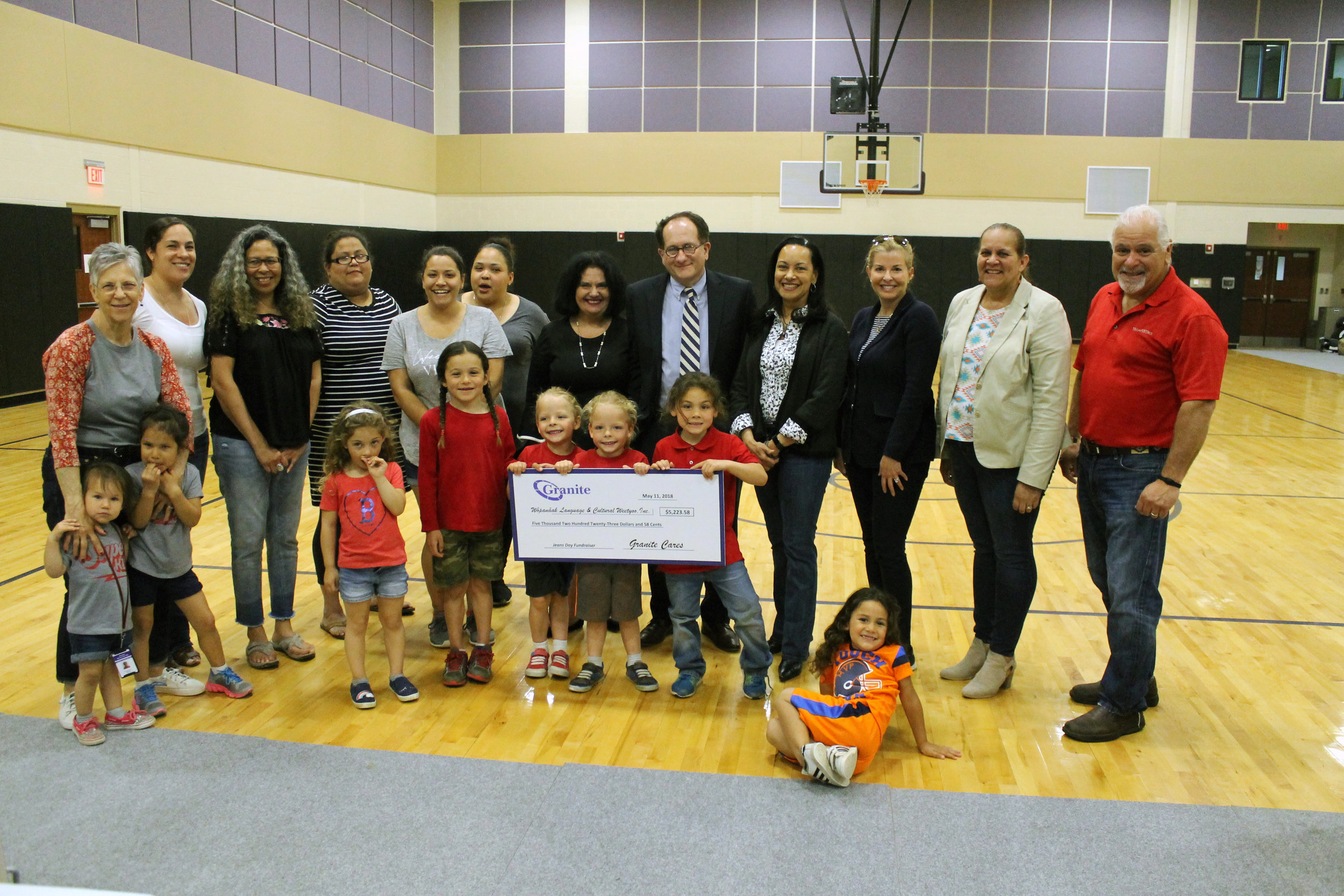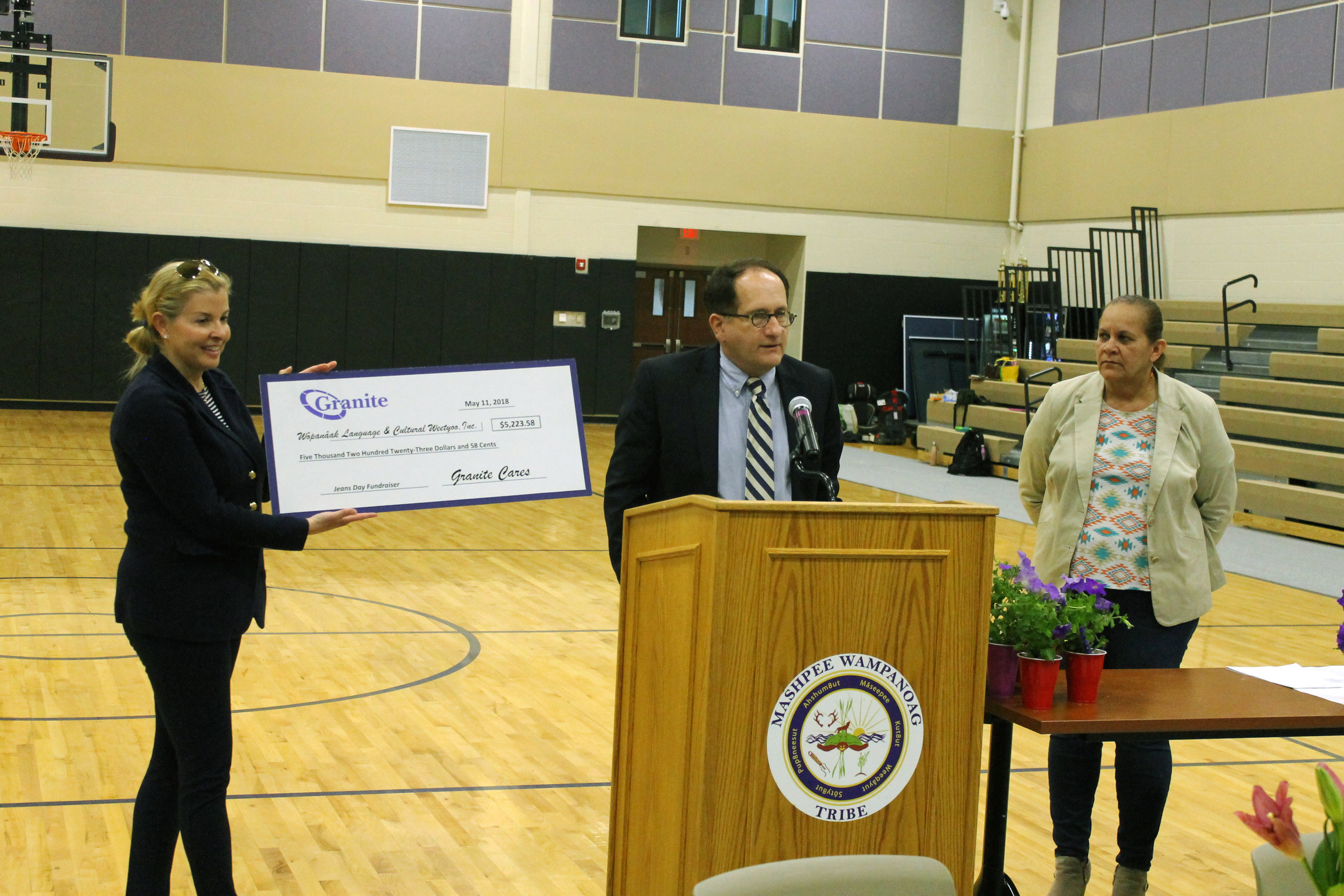


The Wôpanâak Language Reclamation Project recently received a donation to help expand the offerings at its language immersion school.
Granite Telecommunications and the Yale Club of Cape Cod donated $5,125 to the school operated by the WLRP and the Mashpee Wampanoag tribe since 2016.
“A great portion of the funding that they are donating is going to help us expand our current pre-K and K classrooms to offer reading and seating area for our first grade students,” said Jennifer Weston, the Project Director of Mukayuhsak Weekuw, also known as The Children’s House.
The funding will also be used to purchase new curriculum materials to accommodate their more advanced STEM, Language Arts, Cultural Studies and Geography content.
The Children’s House, based in the Mashpee Wampanoag Tribe’s Community and Government Center, is expanding enrollment from 20 to 25 students in the fall.
“The children receive six hours daily of Wôpanâak language immersion instruction and also some language during our afterschool program from 3:30 to 4:30 p.m.,” Weston said.
The immersion school follows the traditional academic calendar and offers classes 180 days per year totaling more than 900 hours of language immersion for full-time students.
“Our kindergarten students, because they potentially could transition into other school systems, they do receive about an hour a day of English language arts instruction both for reading and for some math content and geography as well,” Weston said.
The majority of the students are 3- and 4-year-olds and they are receiving all of their subject instruction predominantly in the Wôpanâak language.
Weston said the goal is retain current kindergarten students through grades 3 or 4.
“We have some teachers who are preparing to continue their Montessori Elementary Education so that they become certified as lower elementary teachers,” she said.
The Wôpanâak Language Reclamation Project is a nonprofit initiative of the Wampanoag Nation whose mission is to restore the Wôpanâak language back to the community as the principal means of expression.
“Our indigenous languages are critical in linking us to understanding our ancestors’ homelands,” Weston said. “They tell us about our ceremonies and our roles as good relatives to each other and to the lands and waters where we’ve survived for many thousands of years.”
Weston said learning the language empowers children and gives them a positive sense of their native identity, “which is something that is really lacking in public school systems for the most part.”
For more information on Mukayuhsak Weekuw visit the Mashpee Wampanoag Tribe's Language Department online.



